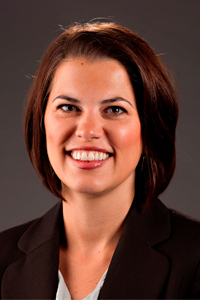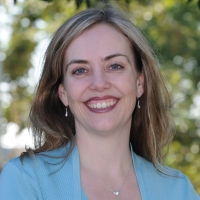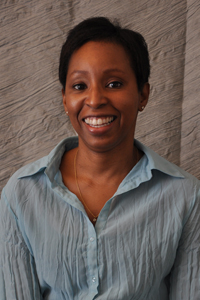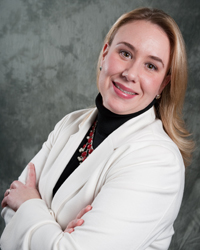 Does your undergraduate major matter when you’re applying to MBA programs? Of course it does, but maybe not in the way you might think. Traditional thinking may suggest that an undergraduate degree in economics or other business-based focus might give you an edge in admissions – as this kind of degree might better prepare students for business school – but this might not actually be the case. Continue reading
Does your undergraduate major matter when you’re applying to MBA programs? Of course it does, but maybe not in the way you might think. Traditional thinking may suggest that an undergraduate degree in economics or other business-based focus might give you an edge in admissions – as this kind of degree might better prepare students for business school – but this might not actually be the case. Continue reading
Tag Archives: MBA
Sex Appeal and the MBA
 In a recent episode of Fox’s new sitcom The New Girl, Zooey Deschanel’s normally-frumpy character, Jess, is asked by a male roommate to accompany him as his date to a wedding in order to make his ex-girlfriend jealous. For the occasion, the male roommate tells Jess that she needs to wear a dress that will basically turn heads.
In a recent episode of Fox’s new sitcom The New Girl, Zooey Deschanel’s normally-frumpy character, Jess, is asked by a male roommate to accompany him as his date to a wedding in order to make his ex-girlfriend jealous. For the occasion, the male roommate tells Jess that she needs to wear a dress that will basically turn heads.
She does, and the episode descends into a zany, mischievous lark, where the ex-girlfriend does not get jealous, but rather happy that the male roommate has moved on and has apparently found somebody else. Jess’ experiences bring up the idea of “erotic capital” – that women (generally, although the concept can apply to men, too) can take advantage of their looks and sex appeal to persuade and coerce.
Catherine Hakim might say that Jess leveraged her erotic capital in an attempt to affect a social situation. Hakim is the author of Honey Money: The Power of Erotic Capital, a recent book that has been making waves among some book reviewers and social critics.
MBA Class Size: Big or Small?
 Is bigger necessarily better? BusinessWeek asked Doug Guthrie, the dean of George Washington University’s School of Business, if the size of a school’s program mattered. He responded by saying that it generally depends, and that larger programs can spread their message more effectively – but that in the end, a smaller class size is ultimately better because faculty can have closer and more intimate interaction with students.
Is bigger necessarily better? BusinessWeek asked Doug Guthrie, the dean of George Washington University’s School of Business, if the size of a school’s program mattered. He responded by saying that it generally depends, and that larger programs can spread their message more effectively – but that in the end, a smaller class size is ultimately better because faculty can have closer and more intimate interaction with students.
Intuitively, this makes sense. A small number of people means more direct interaction, and more cohesion. But does a smaller class size make a difference in the long run – and is this effect quantifiable?
Can Your Facebook Profile Sabotage Your MBA Application?
 A recent Kaplan Test Survey had some informative facts about how b-school admissions officers research candidates’ online personas during the MBA application process. Particularly, the report said that 27% of admissions officers surveyed said that they searched the internet for applicants to learn more about them – and 22% admitted that they have researched candidates’ social networking presences, including visiting their Facebook profiles.
A recent Kaplan Test Survey had some informative facts about how b-school admissions officers research candidates’ online personas during the MBA application process. Particularly, the report said that 27% of admissions officers surveyed said that they searched the internet for applicants to learn more about them – and 22% admitted that they have researched candidates’ social networking presences, including visiting their Facebook profiles.
Furthermore, of the admissions officers who did snoop at social media profiles, 14% said that they found something that negatively impacted a candidate’s application. That candid photo snapped of you in an unbecoming pose after a late-night bender? That might look bad.
Social media has quickly become part of our daily lives, and can present problems if it blindly merges uninhibited social lives with our more structured business personas. Fortunately for MBA applicants, the large social media websites have noticed that people lead nuanced online lives, and have adjusted privacy settings accordingly. But still, there are some steps you can take to insure that admissions officers don’t find those incriminating photos.
Video Impressions of USC Marshall
Here is some more raw video from our California business school trip, this time of USC’s Marshall School of Business. Right smack in the middle of Los Angeles. No shortage of water fountains, that’s for sure.
Video Impressions of USC Marshall School of Business from FIND MBA on Vimeo.
Interview: Jodi Schafer of the Tippie MBA
Asking yourself questions like “Where do I want to be?” might seem trite, but it’s an essential step to picking the right b-school and getting in, says Jodi Schafer, director of MBA admissions at the University of Iowa’s Tippie School of Management.
How clear do you think MBA applicants should be about their career direction?
We like to see that candidates have some idea of the different opportunities in business so that once they get here, they’re able to quickly identify with a specific career path. That’s important because we only have two years. A big part of our program is career preparation, and if the student hasn’t identified with a functional area by the second semester it makes it difficult to prepare them for their post-MBA career. The goal is to help them obtain the type of position that they want. That requires focus from the student and the program.
That being said, we realize that candidates a lot of times don’t know exactly what they want to do, and we wouldn’t expect them to. But we would want them to say, “Oh, I would appreciate a career in strategy, and here are the reasons why.” Now the assumptions of what that position would be may be wrong, and they might figure that out during – in our case – the first semester of the program. That’s really the time when they are exposed to alums and current students who talk about their experiences in internships and full-time positions. You kind of go through a day in the life of different careers, so that they can tell the students what to expect, and dispel some of the myths associated with MBA positions.
Interview: Kacy Hayes of the University of San Diego (USD)
What kind of work experience are b-schools looking really for? And what are the biggest mistakes that applicants make on their admissions essays and interviews? We asked Kacy Hayes, MBA admissions manager at the University of San Diego (USD) School of Business Administration.
USD requires at least two years of work experience for MBA applicants. What are you looking for people to have gotten out of their work experience?
Ideally, the candidate would have years of experience in one particular area that they have grown and developed in. On the other hand, we’ve had some phenomenal applicants who have been all over the board with their work experience, still trying to find their niche. If they can connect the dots for us, how their different experiences have all led them to the point of doing an MBA, sometimes they bring a diversity of experiences into the classroom, which can also be great.
There’s no one thing in particular we are looking for in terms of work experience. In general, we are looking for someone who has knowledge of their field and can relate that to what they are studying in the classroom, and therefore enrich the experience of all students by sharing.
Continue reading
Interview: Sherry Wallace of UNC Kenan-Flagler Business School
What are some of the big do’s and don’ts when applying for an MBA program? We asked Sherry Wallace, director of MBA admissions at the University of North Carolina’s Kenan-Flagler Business School.
How much do you expect an applicant to know about what they want to do after the MBA?
This is one of the things I believe has changed the most – how much more focused we expect an applicant to be. The candidate’s motivation and vision for his or her career has always been important, but it’s even more important today.
It’s really hard to be career focused if you do not have a context for understanding what you do well, what types of work you enjoy, what skills you can best leverage. That’s why we continue to expect at least two years of full-time work experience before entering the program. It’s so expensive now to do the MBA, and I feel it is irresponsible for us to allow someone to make a $100,000+ investment if they don’t have a really good and feasible plan.
Of course, it scares me when someone comes in so rigid in their plans that they don’t leave room for opportunity. I think it’s good to be a little bit agile. The world is going to change while they are in business school; probably even between when they submit an application and when they start. Applicants need to realize that opportunities, industries, and situations that they had not anticipated may present themselves.
How much enthusiasm for the school do you like to see from applicants? How do you measure that?
We expect them to be familiar with the school. Sometimes people think we expect some kind of them to declare allegiance to the school. It’s not that at all. We recognize that our applicant pool is quite diverse and that applicants are going to find attractive features at a number of schools.
No, we cannot accurately measure a candidate’s enthusiasm by whether she attends our admissions events or web activities. We know that not everybody is going to be able to attend an admissions event or ever meet somebody from the admissions team. Some people in a cycle might not have done any of the admissions events, but unbeknownst to us, might have worked side-by-side with a graduate of the program who shared a lot of things about the school.
What we look for is that they have made enough of an effort, and taken enough of an advantage of the resources to have a thoughtful and informed reason for making this one of their schools.
Continue reading
Interview: Erin Nickelsburg of the Wisconsin School of Business
In the first in our series of interviews with MBA admissions directors, we spoke with Erin Nickelsburg of the University of Wisconsin – Madison’s School of Business about how to approach applications if you’re a seeking a specialization, are a career changer, or don’t come from a traditional MBA background.
Wisconsin offers several MBA specializations. Are there any differences in terms of how applicants apply to a specialized versus general program?
The way our program runs is different than most MBA programs. Students apply directly to the specialization they are interested in and there is a set number of students we accept into those specializations each year.
What we’re really looking for – the key to all of this for our applicants – is passion. We want to see the passion the applicant has for their area of specialization. We also want to see that an applicant’s career goals are in line with their area of specialization. If you’re going back to get your MBA, there’s an expectation that you’re going to get a job when your done, and it better be a good one.
So, you’re looking for someone who knows where an MBA fits into their career path; not so much a career changer?
We have plenty of people that use our career specializations to launch a complete career shift. We have people who go from finance to brand management; from marketing to finance; or from consulting to operations. The Wisconsin specialization model is an excellent platform to do that, because the depth of study that you get will make up for your lack of experience in that area. The employers that hire Wisconsin’s MBAs know that. They know, for example, that while you have no direct background in supply chain management, the two years you studied supply chain here at Wisconsin has more than prepared you for what you want to do.
Video Impressions of UCLA Anderson
About time for a new post! So, while we work on typing up some more MBA interviews, here is some more raw video footage of one of our visits to UCLA Anderson School of Management a while ago. Just some impressions of the campus on a (pretty typical) sunny day in Los Angeles. Nice huh?
Video: Impressions of UCLA from FIND MBA on Vimeo.



